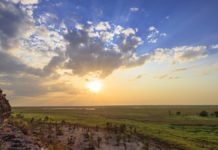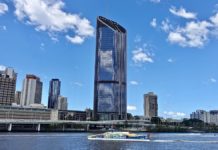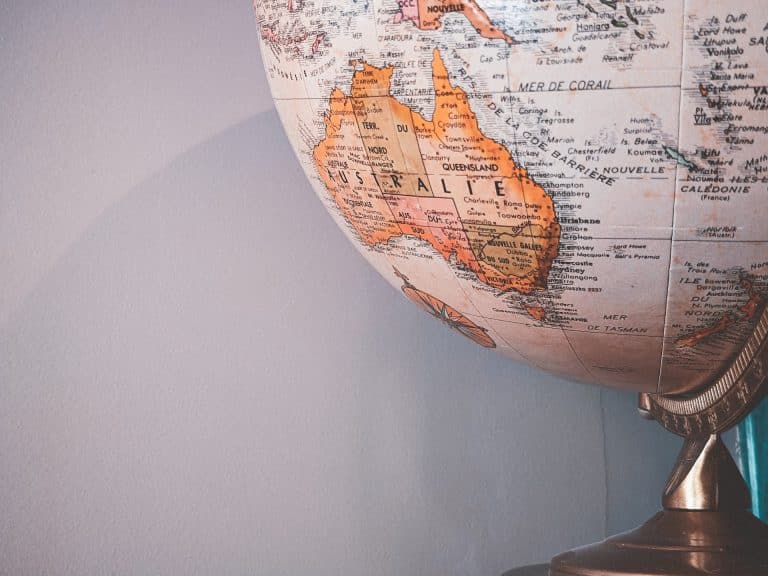
Australia is a huge country that offers an infinite number of places to discover. You will discover landscapes of all horizons: the impressive Australian cities and their urban side, the rainforest, the mountains, the beach and its breathtaking sea coasts… There are so many places to explore that you don’t always know where to start.
Whatever the case, the most important thing is to have a list of Australia’s unmissable spots at hand. So if you’re wondering what to do in Australia, here’s a selection of our must-sees. If you are planning to travel to Australia for 2 or 3 weeks, you will obviously not be able to do everything. If you want to do the whole country and see all the spots, you’ll have to plan several months and do a road trip in a van / campervan. Otherwise, to do only the East Coast or the West Coast of Australia, count about 3 weeks of Road Trip.
Table of Contents
Sydney
The largest Australian city, Sydney is a must-see during a trip to Australia! The city is built around a huge harbour and has many tourist attractions, including the world-famous Harbour Bridge and Opera House. It is also full of beautiful bays and beaches, some of which are just steps away from the shopping streets. Finally, the surrounding areas are full of surprises and beautiful places to discover.
❓ Why: Iconic landmarks like the Sydney Opera House and Harbour Bridge.
📍 Where: New South Wales, southeastern Australia.
⛅ When: Year-round, but spring (September-November) and autumn (March-May) offer mild weather and fewer tourists.
Practical info 2025
• Recommended stay : 3‑5 days (add an extra day for the Blue Mountains).
• Getting there & around : Airport Link train to Central in 13 min.
• What’s new : The Sydney Modern wing of the Art Gallery of NSW (free entry, rooftop harbour views).
• Top free experiences : Coastal walk Bondi→Coogee, Barangaroo Reserve sunset, Wednesday markets in The Rocks.
Read also : 2 days in Sydney – What to do ?
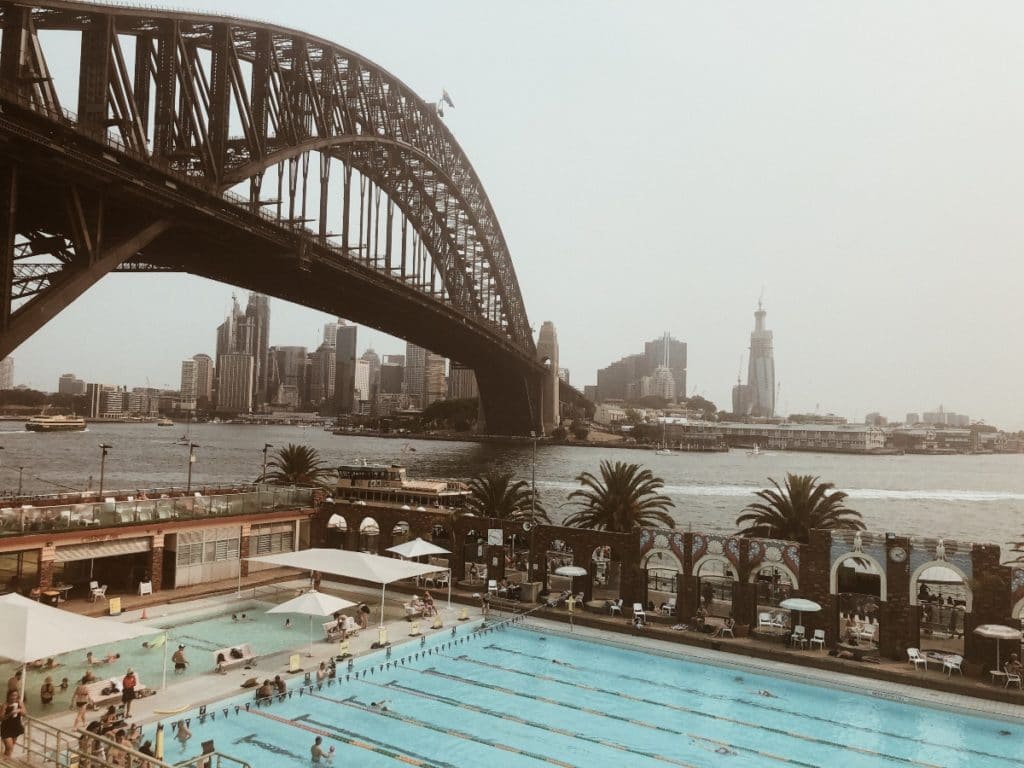
Cairns Area
The second largest city in Queensland, Cairns is primarily known as the starting point for many excursions to the Great Barrier Reef. However, it’s also very pleasant to take a stroll in the city, especially along the Esplanade.
Afterward, cool off in the artificial lagoon at the end of the promenade. This 4,800 square meter saltwater pool is the perfect place to relax and have a good time. The area is full of shaded parks and barbecue spots. There are no beaches in Cairns, due to the presence of many saltwater crocodiles and jellyfish. Additionally, be sure to spend a few days in the heart of the lush Daintree Rainforest.
❓ Why: gateway to the Great Barrier Reef, Daintree Rainforest, Esplanade with the lagoon.
📍 Where: Queensland, northeastern Australia.
⛅ When: June to October to enjoy dry, mild weather ideal for reef activities and rainforest explorations.
Practical info 2025
• Recommended stay : 2 days in Cairns + 2‑3 days for reef & rainforest side‑trips.
• Getting there : Cairns Airport → CBD shuttle $15; long‑distance Greyhound/ Premier Motor Service coaches.
• Must‑do 2025 : New Yirrganydji Sea Rangers Indigenous‑led snorkel tour (small groups, includes reef‑safe sunscreen).
• Budget tip : Free salt‑water Lagoon, public BBQs along the Esplanade; reef trips cheaper mid‑week.
Read also : 2 days in Cairns – What to do ?
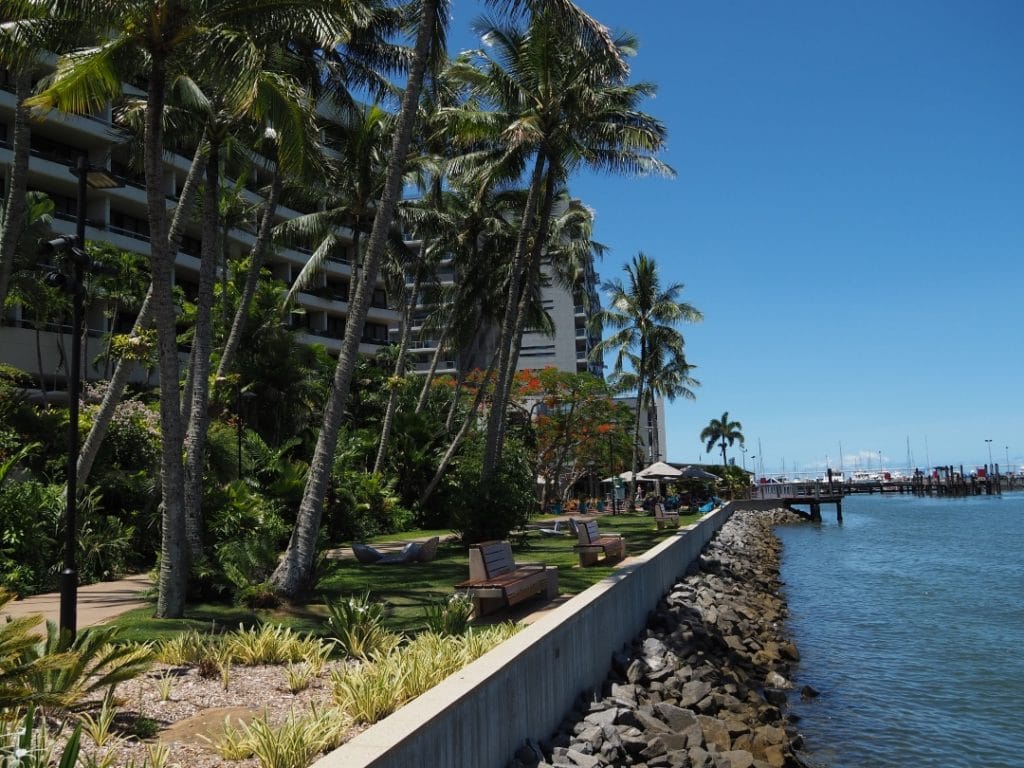
The Great Barrier Reef
With its 2,300 kilometers in length, the Great Barrier Reef is THE largest coral reef in the world (and visible from space). With exceptional natural beauty, it is home to countless marine species: over 400 species of coral, 1,500 species of fish, and 4,000 species of mollusks. It is also the habitat for endangered species such as the dugong or the green sea turtle.
To discover this natural gem in the best way possible, put on a wetsuit and go for a scuba diving or snorkeling session.
❓ Why: The world’s largest coral reef system, perfect for diving and snorkeling.
📍 Where: Off the coast of Queensland.
⛅ When: June to October for the best visibility and weather conditions.
Practical info 2025
• Recommended stay : Full‑day outer‑reef cruise or multi‑day live‑aboard.
• Fees & conservation : Environmental Management Charge is now $8.50 per person (included in tour price).
• Health of the reef : Localized bleaching recorded in early‑2025 – pick operators with High Standard accreditation.
• Backpacker tip : Day trips from Townsville/Magnetic Island are often $30‑40 cheaper than Cairns departures.
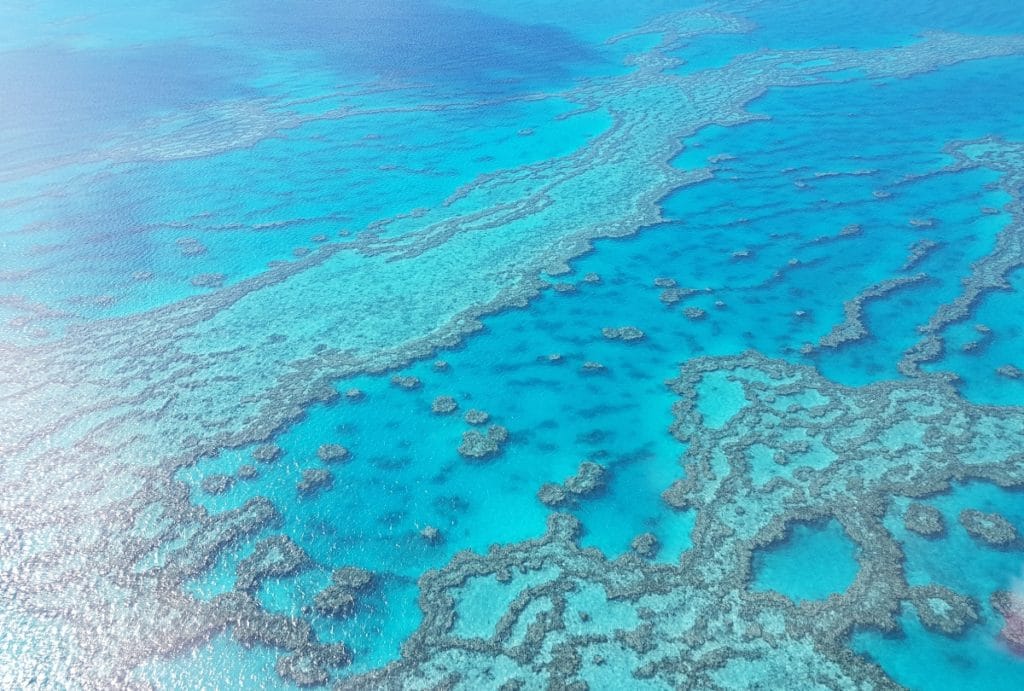
Whitsunday Islands
In the heart of the Great Barrier Reef, discover another marine wonder: the Whitsunday Islands. The archipelago is composed of 74 islands, most of which are uninhabited national parks. The largest of these islands is home to two world-renowned spots: Whitehaven Beach (one of the world’s whitest sand beaches) and Hill Inlet (short walk and its amazing viewpoint). Accessible from Airlie Beach, be sure to explore the Whitsundays in the best way possible: sail, fly, hike, bike, and dive.
❓ Why: Beautiful white-sand beaches and crystal-clear waters ideal for sailing and relaxation.
📍 Where: Off the coast of Queensland, near the Great Barrier Reef.
⛅ When: April to November to avoid the wet season and enjoy warm temperatures.
Practical info 2025
• Recommended stay : 2‑day / 1‑night sailing tour or 3‑4 days self‑guided from Airlie Beach.
• Access : Ferry from Airlie Beach $76 RT; small‑plane scenic flight from $135.
• New rules : Hill Inlet viewing platform limited to 400 pax/day – book national‑park permit with your tour.
• Budget tip : Free campsite on South Molle Island (BYO tent, permit $7/night).
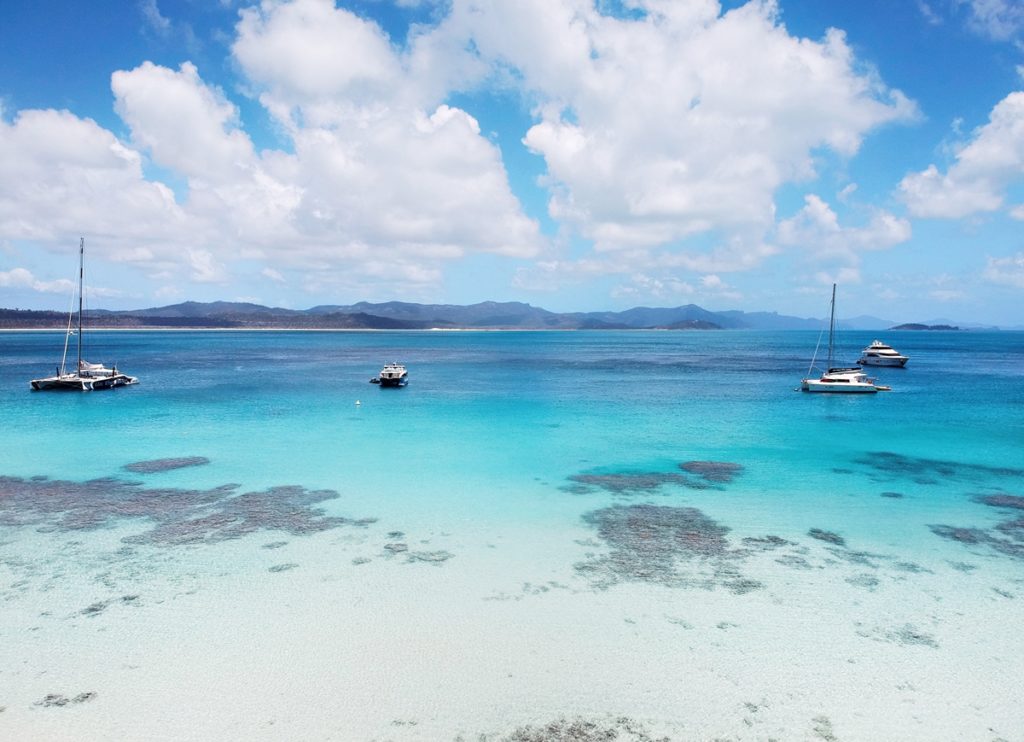
Brisbane
As the capital of the state of Queensland and the third largest city in Australia, Brisbane enjoys a pleasant climate throughout the year. The city is crossed by the river of the same name that flows into the Pacific Ocean. Sightseeing boats operate day and night (for free). A cosmopolitan and lively city, it has a great diversity of landscapes as well as admirable architecture. Skyscrapers, artificial beaches, and parks coexist in this modern capital. Don’t miss the SouthBank and Fortitude Valley neighborhoods, which are very popular with locals and travelers and remain lively until late at night.
❓ Why: South Bank Parklands, museums, scenic Brisbane River.
📍 Where: Capital of Queensland, eastern Australia.
⛅ When: Year-round. Visit from March to May (autumn) or September to November (spring) for mild weather and outdoor events.
Practical info 2025
• Recommended stay : 2‑3 days city break.
• What’s new : The $3.6 bn Queen’s Wharf development partially opened Feb 2025 with Sky Deck (250 m wrap‑around view, free 10‑am–5‑pm).
• Getting around : CityHopper ferries remain free; e‑scooters $1 unlock + 45c/min.
• Backpacker tip : CityCycle bike‑share discontinued – use 500‑km of riverside cycleways with BYO bike.
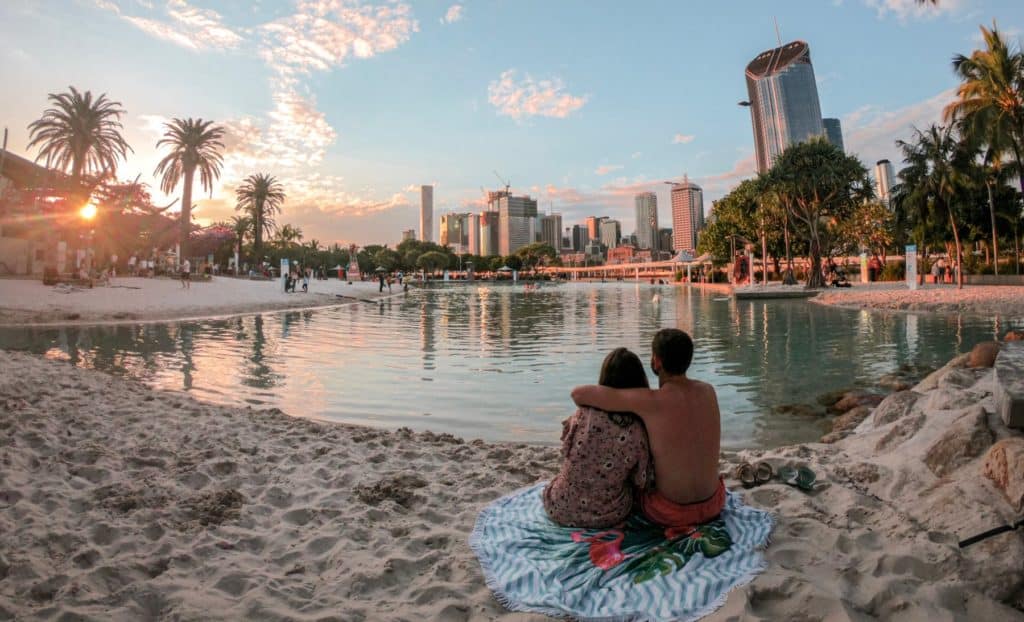
K’gari (Fraser Island)
Also known as K’Gari (“paradise” in Aboriginal language), Fraser Island is THE largest sand island in the world. Its 250 km of clear sand beaches and crystal-clear waters are full of secrets. Here, tropical forest and sand dunes coexist. It is the only place in the world where this phenomenon occurs. Fraser has more than 200 freshwater lakes that are superb swimming spots (completely safe). Indeed, the ocean is home to many species of sharks and deadly jellyfish, so don’t swim there!
You will surely spot the famous dingoes of the island, which are not at all shy. Beware, especially with food that they will not hesitate to steal from you. Visiting K’gari is mandatory in a 4WD and is subject to the rhythm of the tides. It is ideal to stay several days on the island to fully enjoy this wild ambiance.
❓ Why: world’s largest sand island, unique ecosystems, rainforests, freshwater lakes like Lake McKenzie.
📍 Where: Off the coast of Queensland, northeast of Brisbane.
⛅ When: May to October to enjoy cooler temperatures, minimal rainfall, and prime whale-watching opportunities.
Practical info 2025
• Name change : Fraser Island officially restored to K’gari (pron. « GUR‑ree ») in 2023 – signage updated.
• Permits : Vehicle access permit $58.35/1‑month; camping permit $7.40 pp/night (book early for Easter).
• Safety update : 12 dingo incidents in 2024 – store food in locked containers & stay >50 m away.
• Budget tip : Off‑peak barge from Inskip Point (before 9 am) saves $20.
Read also : Fraser Island – Complete Guide
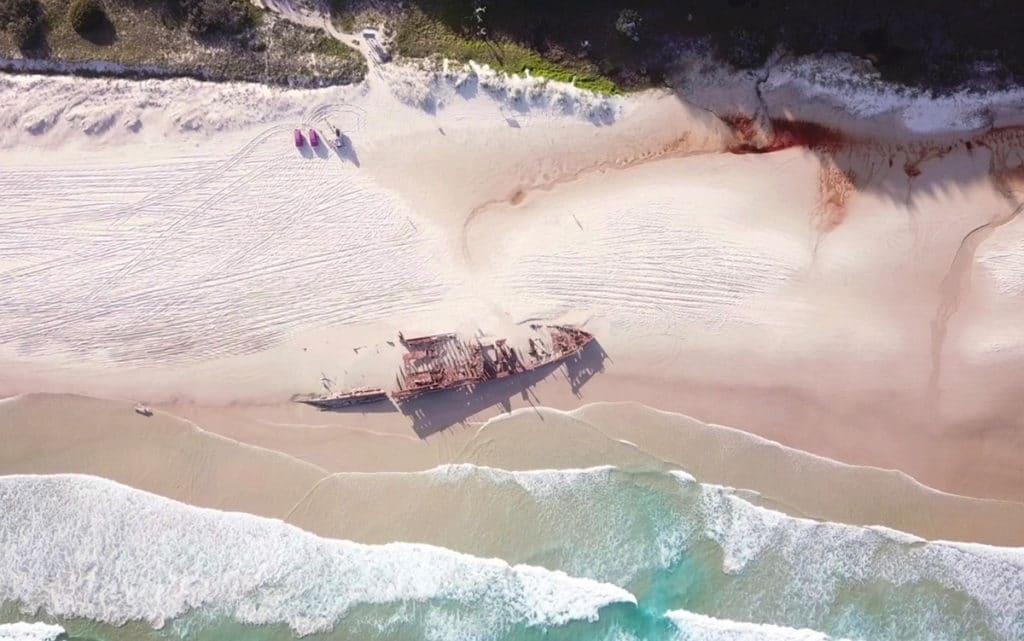
Jervis Bay
Jervis Bay is a little paradise on earth. It is home to two national parks (Jervis Bay and Booderee) as well as a marine park where a multitude of animal species live, some of which are protected. You can meet dolphins, penguins, whales and many other species. You will get lost in the immensity of its white sandy beaches and its clear turquoise waters. Nearby, there are beautiful little towns worth a visit.
❓ Why: stunning white-sand beaches, crystal-clear waters, Hyams Beach.
📍 Where: 2 hours south of Sydney, East coast
⛅ When: November to April for the best beach weather and marine activities.
Practical info 2025
• Recommended stay : 2 days + whale‑watch cruise (Jun–Oct).
• Fees : Booderee National Park car pass $20/day (1 Aug 2024 fee rise).
• New experience : White Sands Walk extended boardwalk to Greenfield Beach (opened Nov 2024).
• Backpacker tip : Free hot showers at Huskisson Beachfront Reserve.
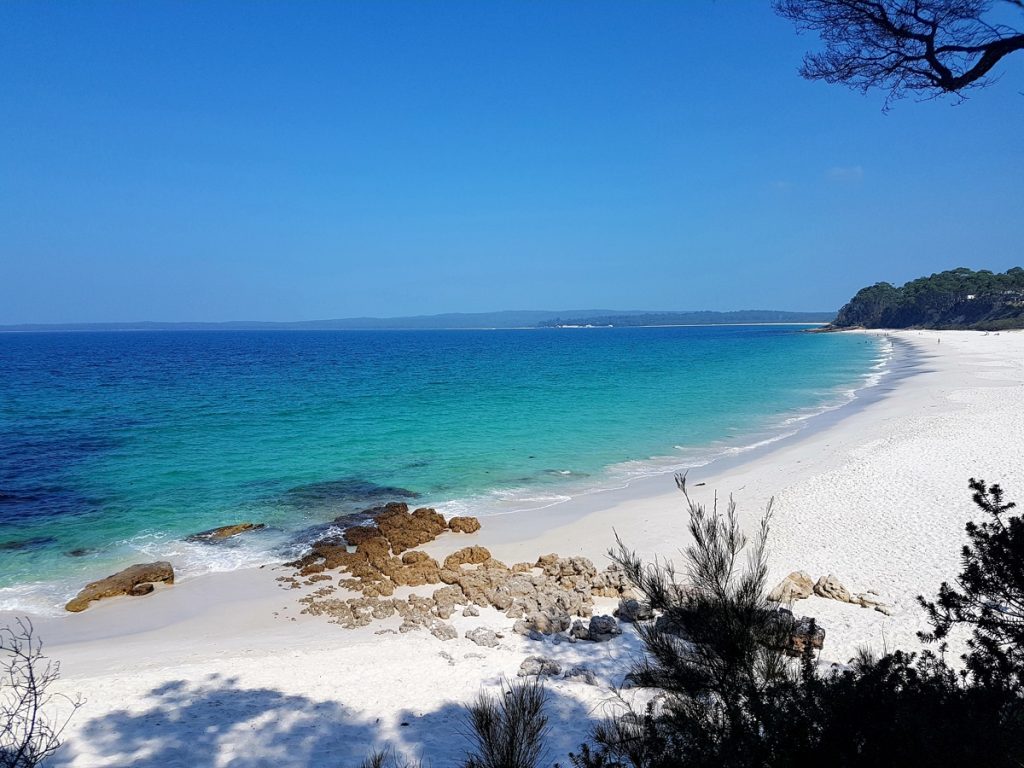
🚐 Cheap Campervan Rental
All our tips & tricks for renting a cheap campervan in Australia! Practical hacks, online comparison sites, promo codes, and more.
Melbourne
Australia’s second largest city and Victoria’s capital, Melbourne is a vibrant city with an incredible cultural heritage. The city is full of museums of all kinds, parks and botanical gardens, lively neighbourhoods and has a characterful architecture! It’s a must-see destination for any visitor.
❓ Why: Known for its cultural diversity, vibrant arts scene, and fantastic coffee.
📍 Where: Victoria, southeastern Australia.
⛅ When: Year-round, but visit in November for the Melbourne Cup or January for the Australian Open.
Practical info 2025
• Recommended stay : 3‑4 days inc. day‑trip to Yarra Valley or Phillip Island.
• Transport : Free‑Tram Zone enlarged to include Queen Victoria Market (Jan 2025).
• What’s new : Metro Tunnel opens Sept 2025 cutting 10 min off airport‑SkyBus transfer to CBD.
• Budget tip : NGV International & NGV Contemporary (new Flinders St campus, free entry) double art for zero dollars.
Read also : 2 days in Melbourne – What to do ?

Tasmania
If you have the opportunity, take the ferry to Tasmania. Very different from the rest of the country, you will definitely fall under the spell of this wild land. Tasmania offers its visitors a wide variety of landscapes: national parks, glaciers, sand dunes and rainforest, but also coastal moors and Edenic beaches. Meet its exceptional wildlife, especially penguins and the legendary Tasmanian devil.
❓ Why: Pristine wilderness, stunning national parks, and unique wildlife.
📍 Where: An island state south of the Australian mainland.
⛅ When: December to February for outdoor activities and festivals.
Practical info 2025
• Recommended stay : 7‑10 days loop or 3‑4 days Hobart + surrounds.
• Access : Spirt of Tasmania moved to new Geelong terminal (Oct 2024), fares from $109 seat one‑way.
• Booking alert : Overland Track now $275 May‑Oct (permit includes bus to Lake St Clair).
• Backpacker tip : Free winter campervan sites in Cradle Mountain (June‑Aug)
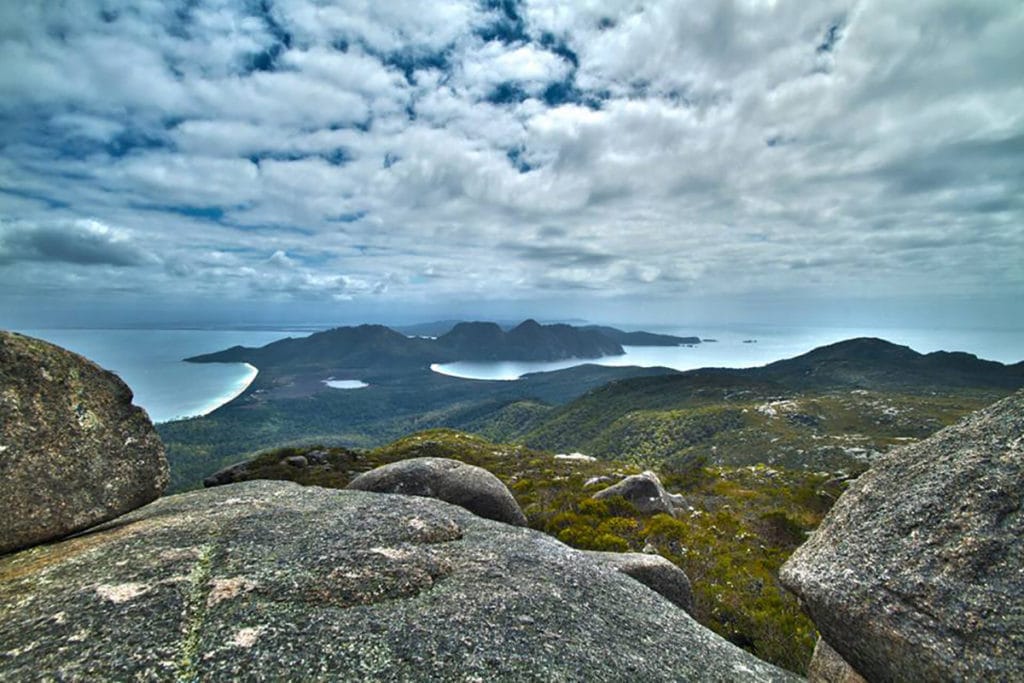
Great Ocean Road
At 253km long, the Great Ocean Road is Australia’s most beautiful scenic route! Travellers who choose to take this route will be won over by the beauty of its landscapes. Spectacular views, abondant wildlife (kangaroos, koalas, dolphins, whales…) and rock formations will not fail to amaze you.
❓ Why: A scenic coastal drive featuring the Twelve Apostles and lush rainforests.
📍 Where: Victoria, southwest of Melbourne.
⛅ When: Year-round, but summer (December-February) offers the best weather for beach activities.
Practical info 2025
• Recommended stay : 2‑3 days (Torquay → Port Campbell).
• What’s new : Viewing platform at the Twelve Apostles reopened April 2025 after cliff‑stabilisation works.
• Driving note : Daily vehicle cap on Gibson Steps car park (100 spaces) – arrive before 9 am.
• Budget tip : Camp at Aire Crossing free reserve (flush toilets, donation box).
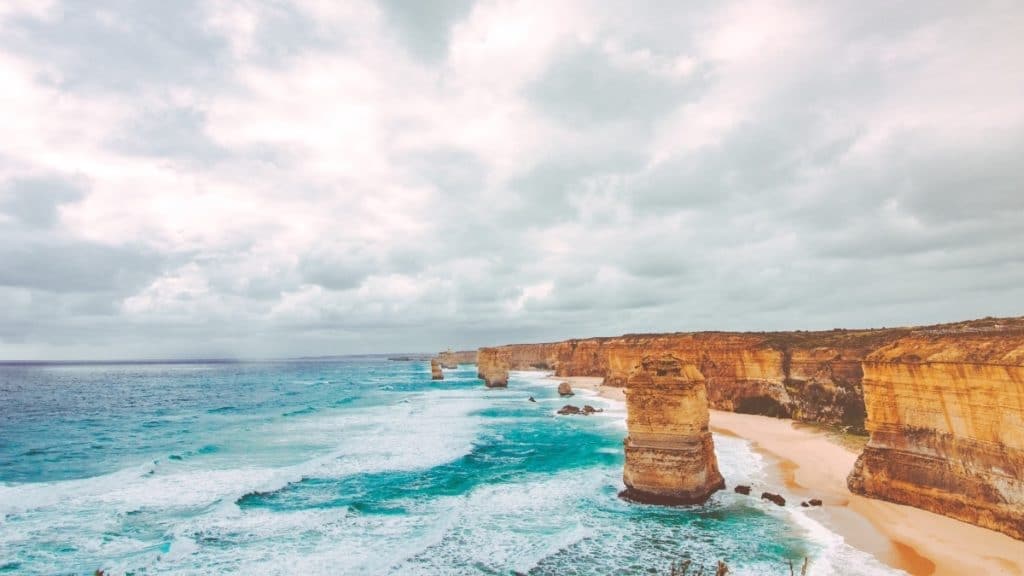
Kangaroo Island
Easily accessible by ferry from Cape Jervis, Kangaroo Island is the perfect destination for nature lovers! It is 155 km long and offers a multitude of landscapes. Its protected fauna is also very varied. It is made up of kangaroos and wallabies, koalas, sea lions and sea lions, as well as monitor lizards, dolphins and whales, among others.
❓ Why: kangaroos, koalas, sea lions, and diverse bird species, Remarkable Rocks, Admirals Arch, and pristine beaches. F
📍 Where: South Australia, southwest of Adelaide.
⛅ When: March to May (autumn) or September to November (spring) for mild weather, fewer crowds, and optimal wildlife viewing opportunities.
Practical info 2025
• Recommended stay : 3 days self‑drive.
• How to get there : Sealink ferry $108 pp return + $216 vehicle; Rex flights from Adelaide $129 ow.
• Post‑fire update : Flinders Chase NP fully reopened Dec 2024 with new heritage‑style boardwalk at Remarkable Rocks.
• Budget tip : Fuel 25 % cheaper in Kingscote than at park roadhouses.
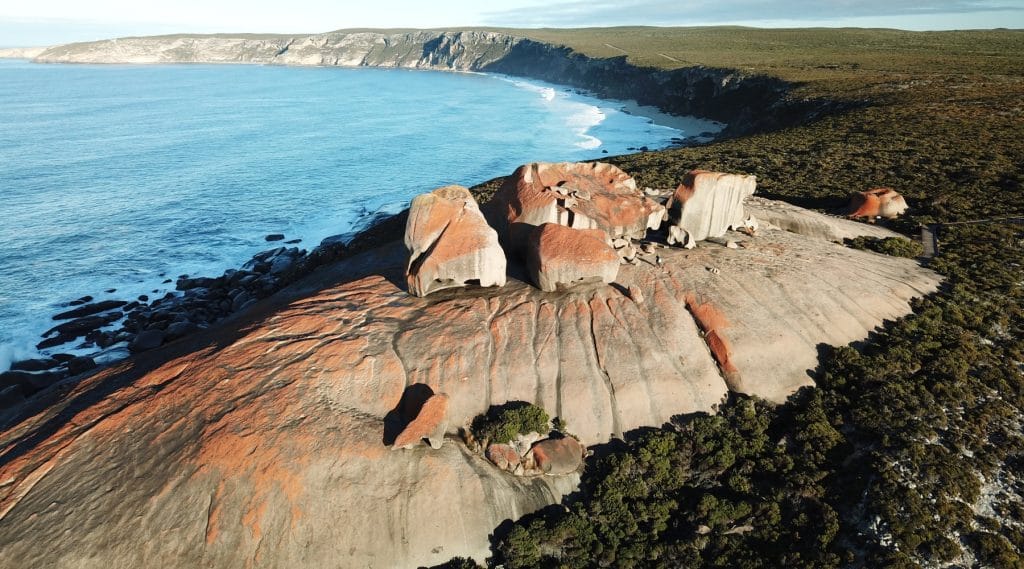
Perth
Combining urban style with natural beauty, Perth enjoys exceptional year-round sunshine. Stroll through its diverse cultural and vibrant neighbourhoods and learn more about Aboriginal culture with a stroll through Kings Park and Botanic Garden. It’s one of the largest city centre parks in the world! Here you can choose from waterfront and vineyards… but don’t miss Rottnest Island and its cute population of smiling quokkas.
❓ Why: Beautiful beaches, a thriving food scene, and proximity to natural attractions like Rottnest Island.
📍 Where: Western Australia.
⛅ When: September to November for wildflower season or March to May for pleasant weather.
Practical info 2025
• Recommended stay : 2‑3 days.
• What’s new : WA Museum Boola Bardip free entry (opened 2023) & pedestrian bridge linking Elizabeth Quay to Optus Stadium.
• Transport : Airport‑CBD rail opened Oct 2022 ($5 zone‑2 fare).
• Backpacker tip : Rottnest Island same‑day return ferries after 2 pm are $20 cheaper.
Read also : Top things to do in Perth

👷 Get your White Card in Australia (with discounts)
Take advantage of special offers to obtain the white card and work in the construction industry.
Margaret River
A traditional land of the Wadandi (‘salt water’) people, the Margaret River region is full of natural wonders. See the local wildlife and explore the surrounding flora. For a unique experience, go underground to discover the crystal caves. You can also walk to Cape Leeuwin, where the Indian and South Pacific Oceans meet.
Activities such as mountain biking, abseiling and rock climbing, helicopter rides and surfing are all available. For foodies, sample the local cuisine by wandering through the farmers’ markets or visiting the local wineries.
❓ Why: world-class wineries, stunning beaches, and limestone caves.
📍 Where: Western Australia, about 3 hours south of Perth.
⛅ When: September to November (spring) or March to May (autumn) for mild weather, blooming wildflowers, and grape harvest season.
Practical info 2025
• Recommended stay : 2‑4 days.
• New tours : Wardandi Bilya kayak & culture tour (Indigenous‑led).
• Budget tip : Most cellar doors still offer free tastings mid‑week; bring own picnic to vineyard lawns.
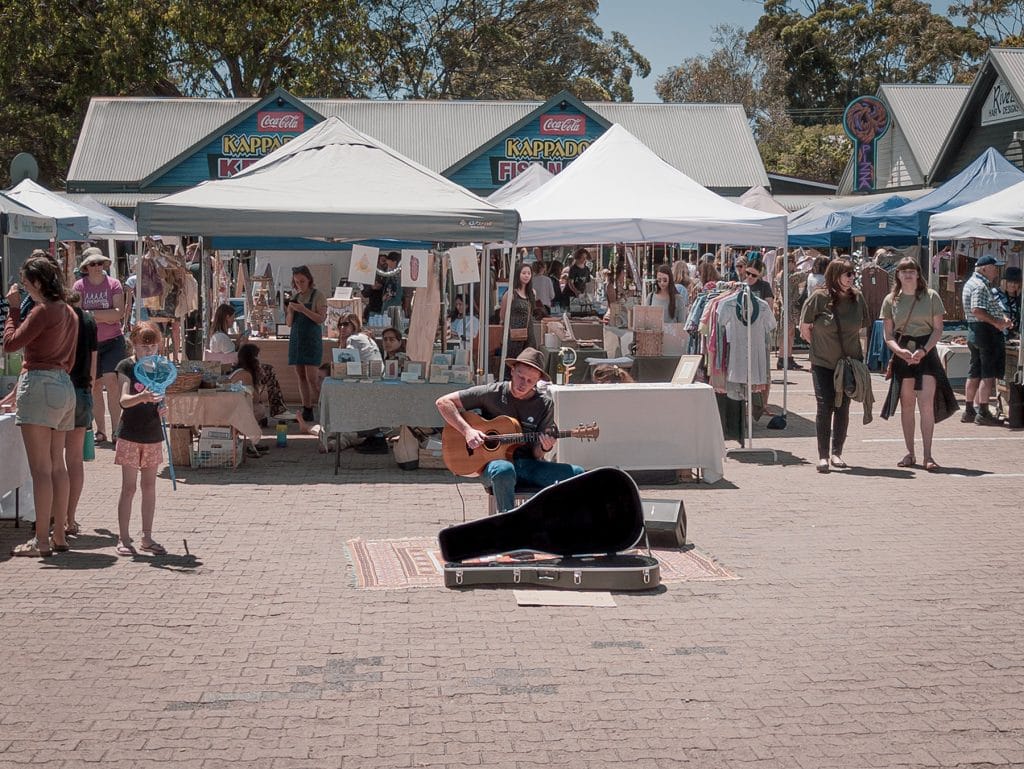
Albany
A charming little town on the coast (4 hours drive from Perth), you’ll feel right at home in Albany with its cool seaside climate. Its national park, beautiful beaches and coastline, hiking and ancient architecture will soon win you over.
Cycling enthusiasts will be delighted to ride Munda Biddi, which is THE longest off-road cycle path in the world! During the winter and spring months, you are sure to catch a glimpse of the whales migrating along the coastline.
❓ Why: The Gap and Natural Bridge in Torndirrup National Park, National Anzac Centre.
📍 Where: Southern coast of Western Australia, about 4.5 hours from Perth.
⛅ When: September to April for the best weather, outdoor activities, and whale watching opportunities.
Practical info 2025
• Recommended stay : 2 days.
• Whale update : Southern right whales spotted June‑Oct; free viewing decks at Marine Drive.
• New trail : Stage 2 of the Bald Head Walk Track (13 km) opened March 2025.
• Budget tip : Free overnight parking for self‑contained vans at Frenchman Bay car park.
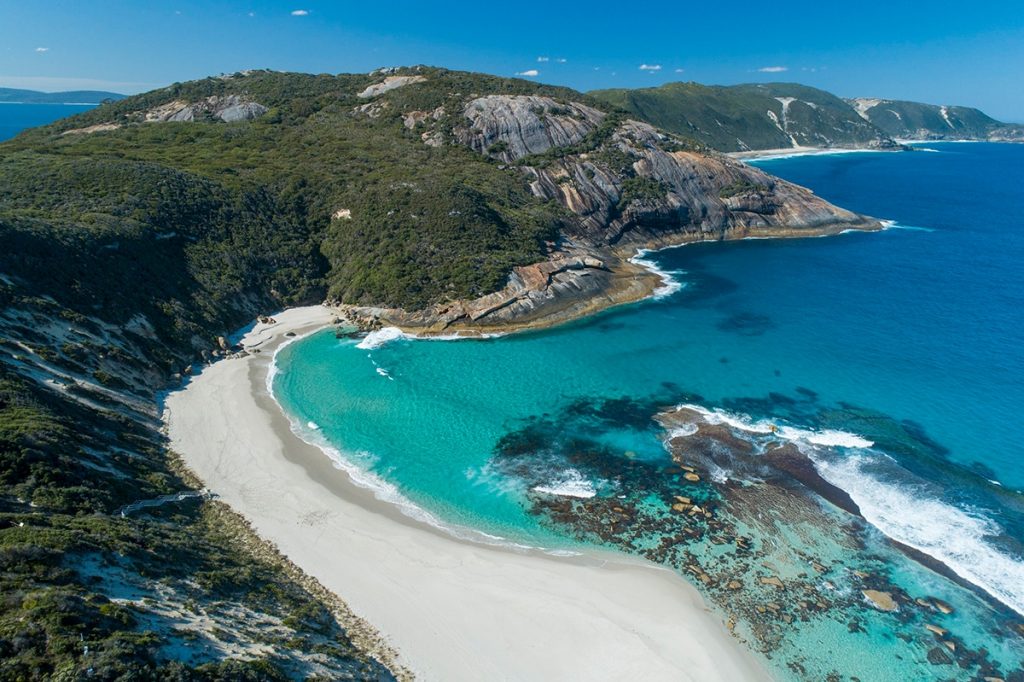
Esperance
White sand and turquoise waters are the order of the day! Welcome aboard this pretty Australian nugget. The stunning seascapes of the seaside town will keep you on your toes for the duration of your stay in Esperance.
Highlights include Lucky Bay and its kangaroos sunning themselves on the beach, Cape Le Grand National Park and its 20km hike to discover incredible marine life, and the candy pink waters of Lake Hillier.
❓ Why: Lucky Bay, where kangaroos can often be seen lounging on the sand, Cape Le Grand National Park, Lake Hillier.
📍 Where: Southern coast of Western Australia, about 7 hours from Perth.
⛅ When: November to March for ideal beach weather, swimming, and outdoor activities.
Practical info 2025
• Recommended stay : 3‑4 days.
• Road note : Cape Le Grand NP sealed access road completed Dec 2024 – 2WD ok.
• New attraction : Pink‑lake helicopter flights resumed (lake refilled Jan 2025).
• Budget tip : National‑park camping at Lucky Bay $20 pp incl. hot showers.
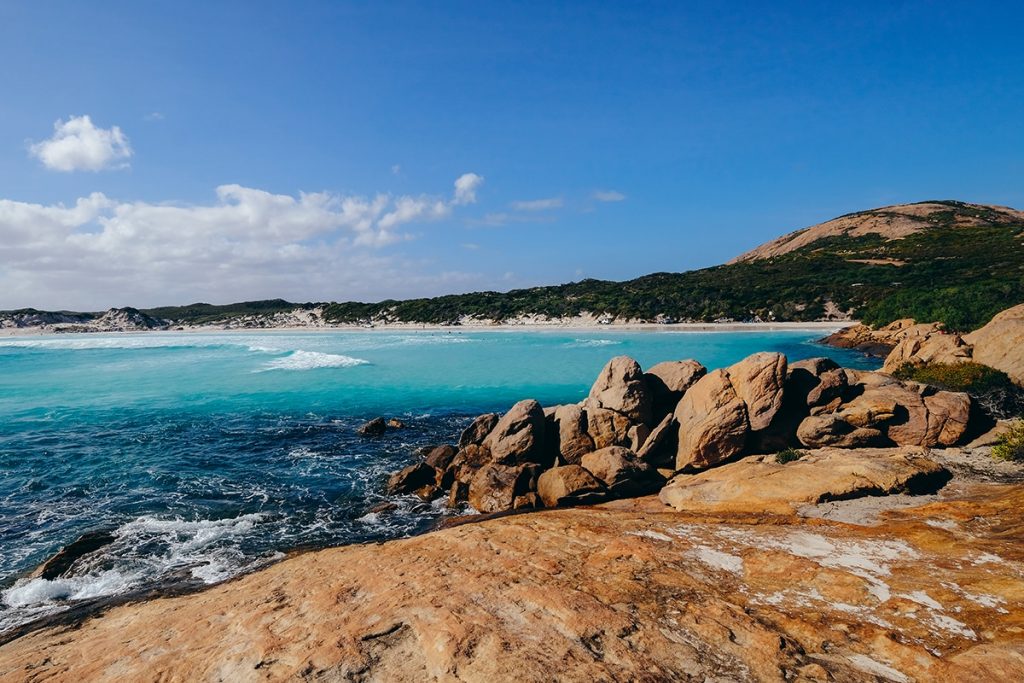
Kalbarri National Park
The national park has a beautiful white sandy beach at its centre. The surrounding rocky sites are spectacular. The Murchison River carved a magnificent gorge millions of years ago through the red and white sandstone cliffs. The gorge stretches for 80km. After exploring the park, try your hand at a variety of water activities in this ideal location, including rafting, canoeing, abseiling and fishing.
❓ Why: Nature’s Window, Z-Bend, Kalbarri Skywalk. Fantastic hiking, abseiling, and kayaking opportunities.
📍 Where: Mid West region of Western Australia, about 6 hours north of Perth.
⛅ When: April to October to enjoy the mild weather and spectacular wildflower season, which peaks from July to September.
Practical info 2025
• Recommended stay : 1‑2 days.
• What’s new : Twin cantilever Skywalk open 9 am–5 pm daily (entry included in $15 vehicle pass).
• Heat rule : Loop Trail closed after 7 am Nov–Mar – start early!
• Budget tip : Stay in coastal Kalbarri town (free sunset pelican feeding at 8:45 am).
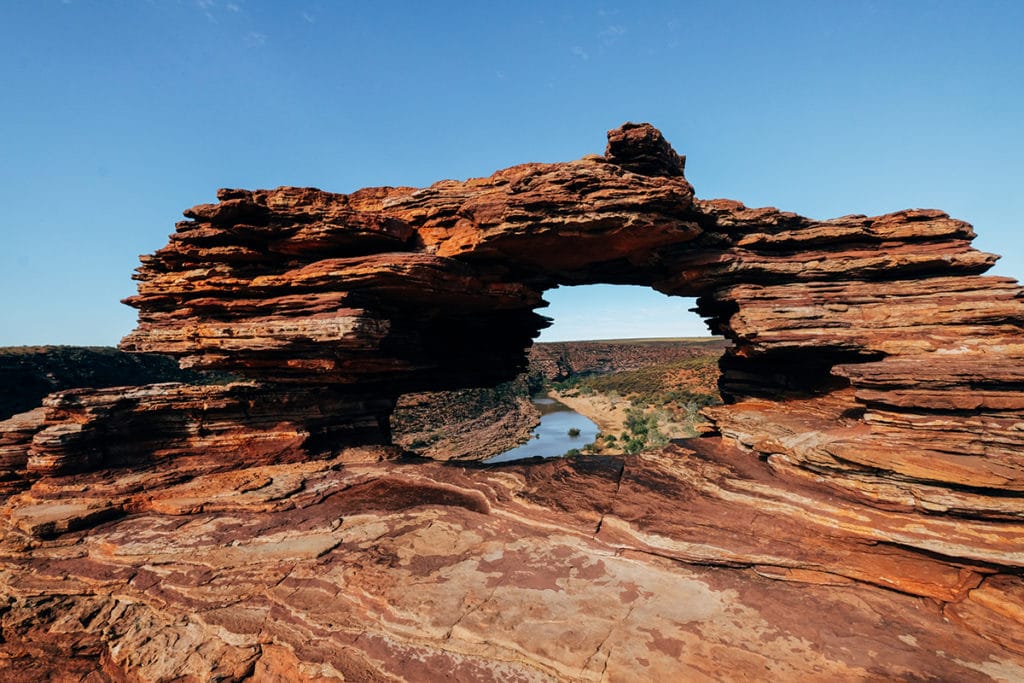
Shark Bay
A UNESCO World Heritage Site, Shark Bay covers 2.2 million hectares along the coast. Renowned for its beauty and natural values, its giant seagrass beds, stromatolites, dugong population and numerous marine species make it a haven for wildlife. Among other things, make a mandatory stop at Monkey Mia (to see dolphins up close) and Francois Peron National Park to contemplate its marine and land diversity.
❓ Why: Monkey Mia dolphins, Shell Beach, and the Stromatolites at Hamelin Pool.
📍 Where: Western Australia, about 8 hours north of Perth.
⛅ When: April to October for pleasant weather.
Practical info 2025
• Recommended stay : 2 days.
• Access : Sealed Indian Ocean Drive all the way to Denham (fuel only every 200 km).
• Boardwalk project : $4.6 m rebuild of Hamelin Pool stromatolite boardwalk underway, completion late‑2025 – view from land platform until then.
• Budget tip : Free dolphin feeding viewing at Monkey Mia included in $22 park pass (valid all day).
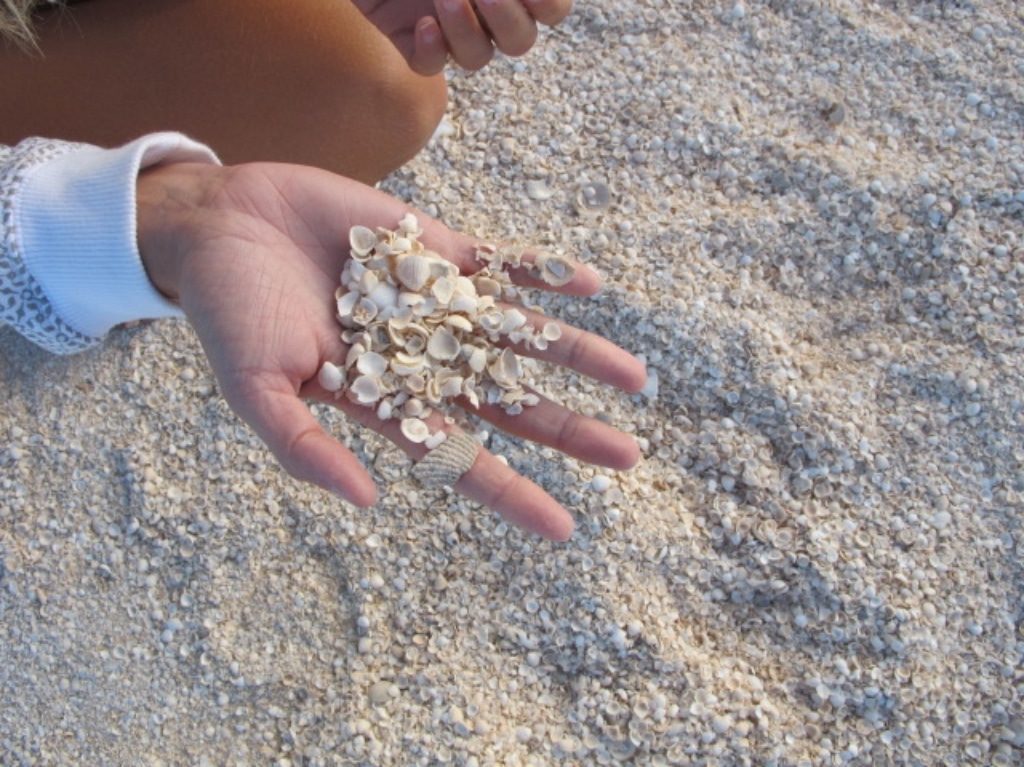
🚐 5% Discount with Travellers Autobarn
Travellers Autobarn is offering a 5% discount to Australia Backpackers Guide readers with promo code GUIDEEN
Ningaloo Reef (Exmouth / Coral Bay)
The largest barrier reef in the world, it is the little sister of the Great Barrier Reef. Ningaloo Reef extends its oceanic paradise over 300 km. This marine park boasts a majestic reef (coral but not only!) and splendid coastal reserves. The Cape Range National Park is a UNESCO World Heritage Site with its extraordinary land and sea features. You will be able to see the magnificent specimens of whale sharks that come along the coast every year.
❓ Why: Pristine marine life and the opportunity to swim with whale sharks, manta rays, and humpback whales.
📍 Where: Western Australia, off the coast near Exmouth and Coral Bay.
⛅ When: March to July for the best chance to swim with whale sharks, and April to October for overall good weather and marine activities.
Practical info 2025
• Recommended stay : 3‑4 days.
• Whale‑shark season : Mid‑March → mid‑August (tours $450‑520); late sightings into early Nov in 2024.
• New marine code : 1 guide per 7 swimmers; drones banned within 1 km of megafauna.
• Budget tip : Free shore snorkel straight off the beach at Turquoise Bay drift.
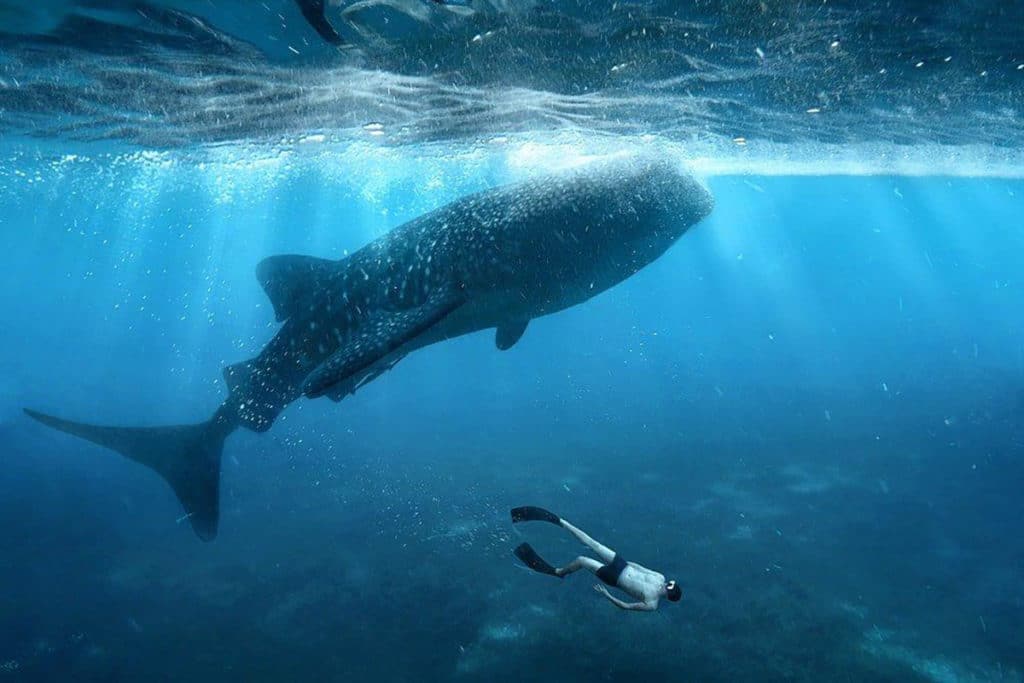
Karijini National Park
Karijini is the second largest state park in Western Australia. This landscape was carved out of the rock 250 billion years ago. You’ll find an impressive number of gorges, cliffs, freshwater falls and chasms in this park. There are some great walks along the rock faces. You can swim and even camp here to observe a remarkable starry sky. The fauna is unique and varied, with red kangaroos, rock wallabies, echidnas, geckos, bats, monitor lizards, snakes etc.
❓ Why: Hancock Gorge, Weano Gorge, the impressive Fortescue Falls.
📍 Where: Pilbara region of Western Australia, about 14 hours north of Perth.
⛅ When: May to September to avoid the extreme heat of summer. Park often closes briefly after heavy summer rain; check alerts.dbca.wa.gov.au.
Practical info 2025
• Recommended stay : 3 days for major gorges.
• Roads : 41 km of internal roads sealed in 2024 – most sites now 2WD accessible; Kalamina & Hamersley Gorge remain unsealed.
• Budget tip : Dales campground $17 pp includes hot solar showers.
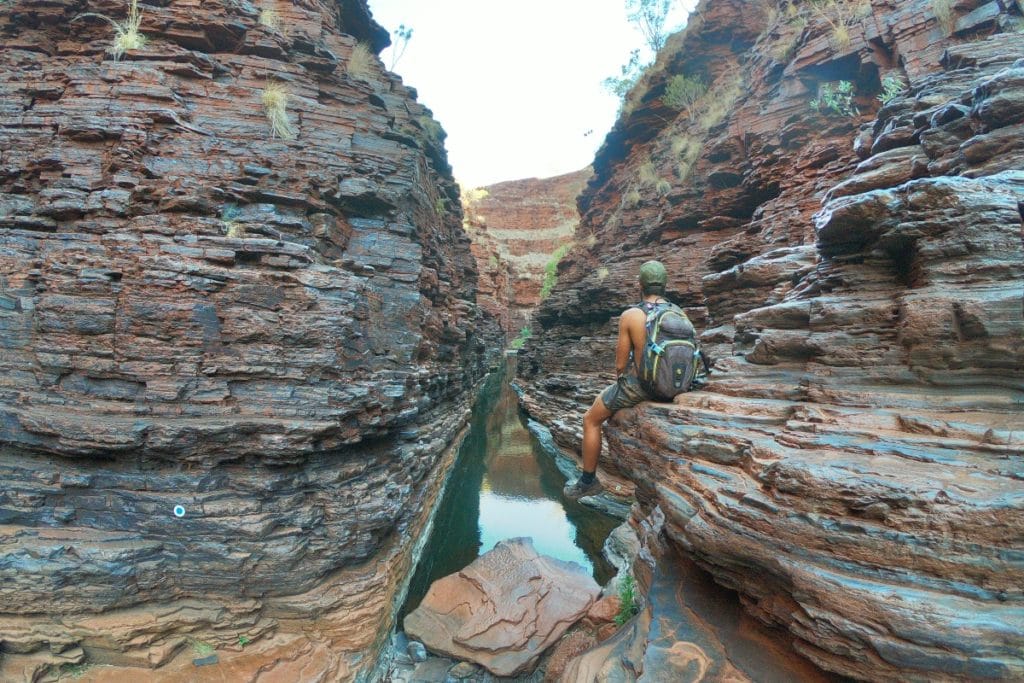
The Kimberley (incl. Gibb River Road)
With its 423,000 km² of remote area, the Kimberley region is one of the least inhabited regions on earth. This does not mean that the area should be left out. On the contrary! There are multiple national parks (including the heritage-listed Purnululu and the Bungle Bungles) waiting to be explored!
And if you head to the coast, you’ll find some of the world’s most beautiful beaches with stunning marine life and magnificent coral atolls. The landscapes are varied and include huge canyons, forests, semi-arid savannah and freshwater springs (which continue into waterfalls). A unique outback experience, immersed in Aboriginal culture.
❓ Why: Bungle Bungles (Purnululu National Park), Horizontal Falls, and the Gibb River Road.
📍 Where: Northwestern Australia, spanning from Broome to Kununurra.
⛅ When: May to October (dry season) for accessible roads and pleasant weather.
Practical info 2025
• Recommended stay : 8‑12 days Derby → Kununurra.
• Road status : Gibb River Road reopened for the 2025 season on 22 May (high‑clearance 4 WD only; check Main Roads travel map).
• Fuel & supplies : Budget $3.20+/L diesel at roadhouses; carry 20 L spare.
• Budget tip : Free bush camps at Lenard River & Russell Creek rest areas.
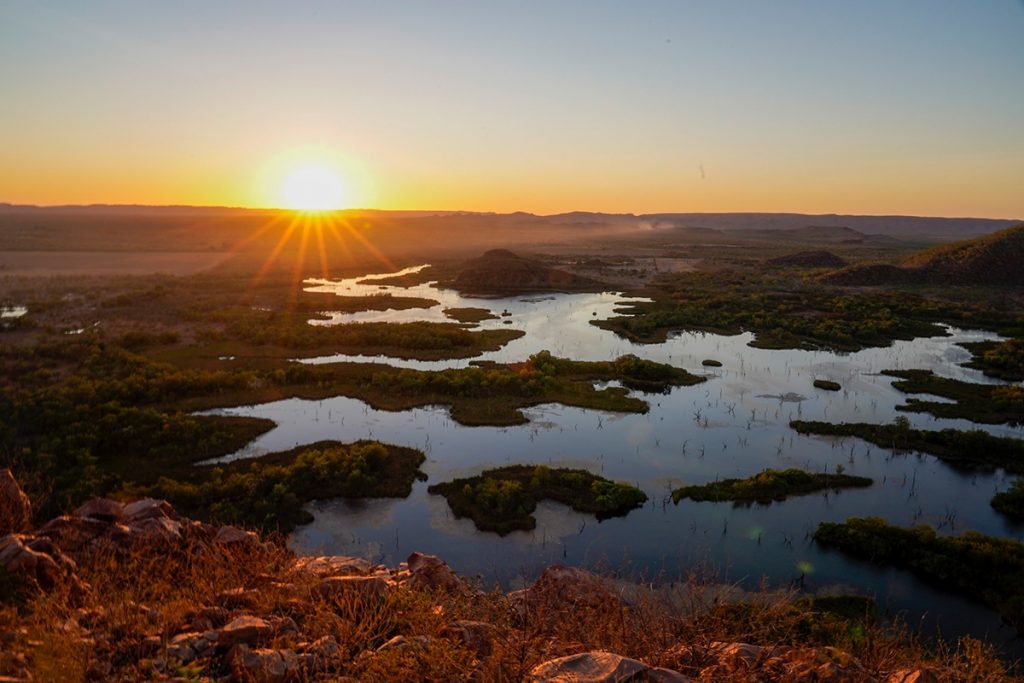
Kakadu National Park
At 20,000 km², Kakadu is the country’s largest national park. It is owned by the Aborigines. It has a strong cultural value due to its ancient rock paintings. Hiking is also a very good way to discover the site and its surroundings. Listed as a UNESCO World Heritage Site, this national park is a real gem!
❓ Why: Rich in Aboriginal culture, diverse wildlife, and stunning landscapes.
📍 Where: Northern Territory, northeast of Darwin.
⛅ When: May to October during the dry season for easier access and pleasant weather.
Practical info 2025
• Entry fees : Adult $40 (dry season) / $25 (tropical summer) – 7‑day pass.
• Recommended stay : 3 days loop Darwin → Kakadu → Litchfield.
• What’s new : Night‑glow croc‑spotting cruises on Yellow Water (launched 2024).
• Budget tip : Bowali Visitor Centre offers free Wi‑Fi & cold‑water refill.
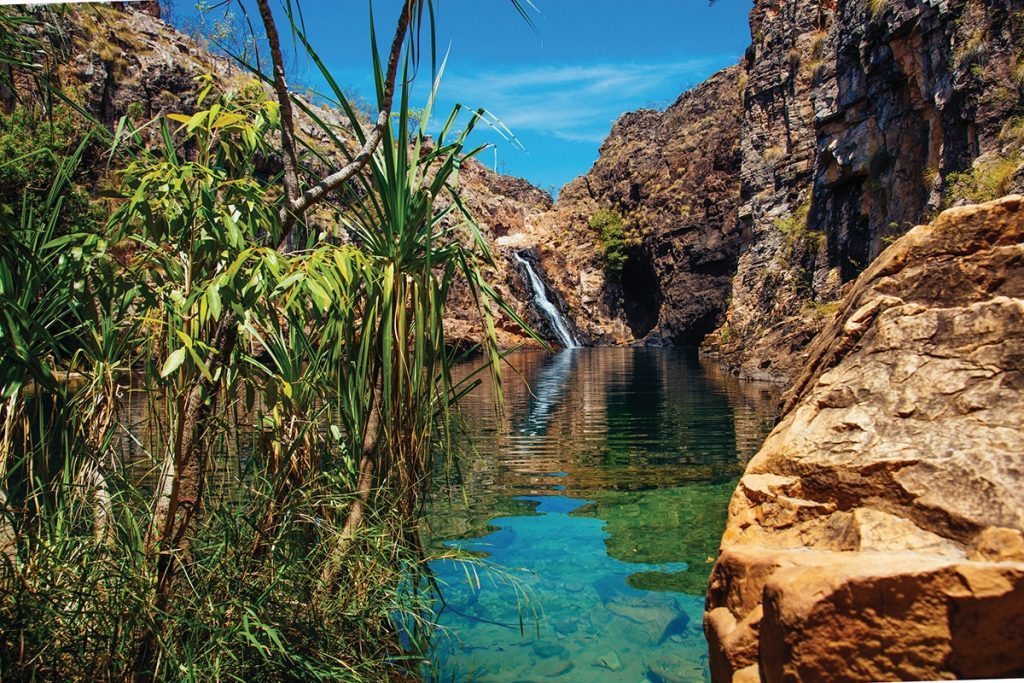
Litchfield National Park
Litchfield National Park, about 100km south of Darwin, is as much a must-see as its rival Kakadu National Park. It is a delightful place to swim and cool off with its waterholes, waterfalls and streams. There are many walks along its waterholes for the enjoyment of visitors.
❓ Why: Florence Falls, Wangi Falls, and the Magnetic Termite Mounds.
📍 Where: Northern Territory, about 1.5 hours south of Darwin.
⛅ When: May to October to avoid the wet season and enjoy the best conditions for swimming and hiking.
Practical info 2025
• Recommended stay : 1‑2 days.
• Upgrade : New sealed Tolmer Falls loop road (opened April 2024) reduces drive‑time from Batchelor.
• Camping : Walker Creek hike‑in sites pre‑book online $4 pp.
• Budget tip : All swimming holes free – no park entry fee.
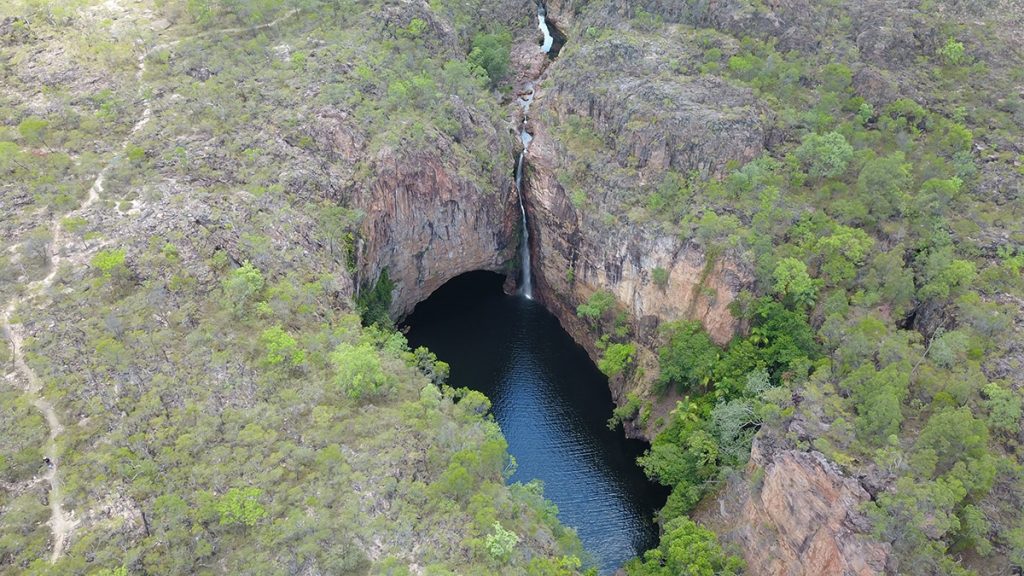
Nitmiluk National Park (Katherine Gorge)
Located 30km north-east of Katherine, this national park covers a large area. It has 13 amazing gorges carved into the sandstone. Its natural hot springs have been fully developed for safe bathing (the water averages 32°C all year round).
❓ Why: Impressive Katherine Gorge, stunning waterfalls and ancient Aboriginal rock art.
📍 Where: Northern Territory, near the town of Katherine.
⛅ When: May to September to enjoy cooler temperatures and lower humidity.
Practical info 2025
• Recommended stay : 2 days.
• Activities : New 10‑km Nitmiluk Cycling Trail links visitor centre to Leliyn (Edith Falls).
• Fees : Canoe hire $49 half‑day (Gorge 1‑2), book 24 h ahead in peak July.
• Budget tip : Free sunset at Baruwei Lookout instead of paid cruise.
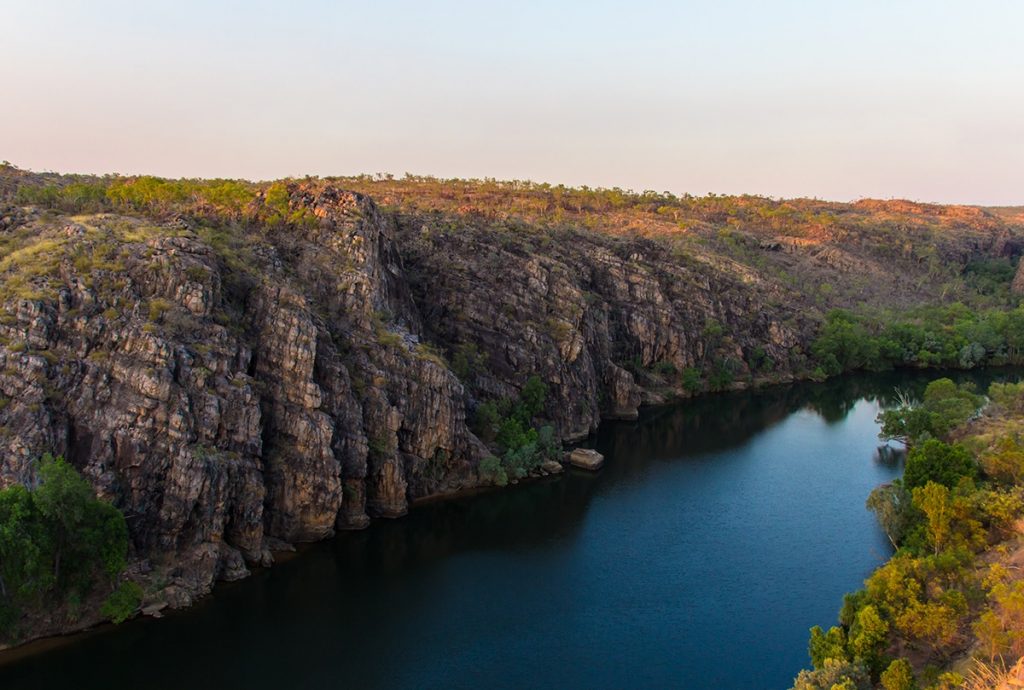
Uluru – Kata Tjuta National Park
If there’s one symbol you shouldn’t miss in Australia, it’s the famous Uluru. Also known as Ayers Rock, this monolith is about 600 million years old. Measuring 348m high, most of it lies underground… and no one knows how deep. There are many walks that allow you to admire it from all angles. One of the walks allows you to loop around the rock and discover many natural and historical sites.
50km from Uluru, don’t miss Kata Tjuta National Park, also known as the Olgas. These rocky domes are incredible and there are some great walks to be had here. Put on your walking shoes and take the Valley Of The Winds Walk, which covers the entire site. There are two lookout points with great views over the valley.
❓ Why: A spiritual and cultural icon, offering stunning sunrise and sunset views.
📍 Where: Northern Territory, central Australia.
⛅ When: May to September to avoid the extreme summer heat.
Practical info 2025
• Entry fees : Adult $38 for 3 days / $50 annual.
• What’s new : Mala Walk digital audio guide (free – download the app onsite wifi).
• Getting around : Resort shuttle is now free; Field of Light bus $59 return.
• Budget tip : Watch sunset from public dune viewing area (car park #4) instead of paid dinner.
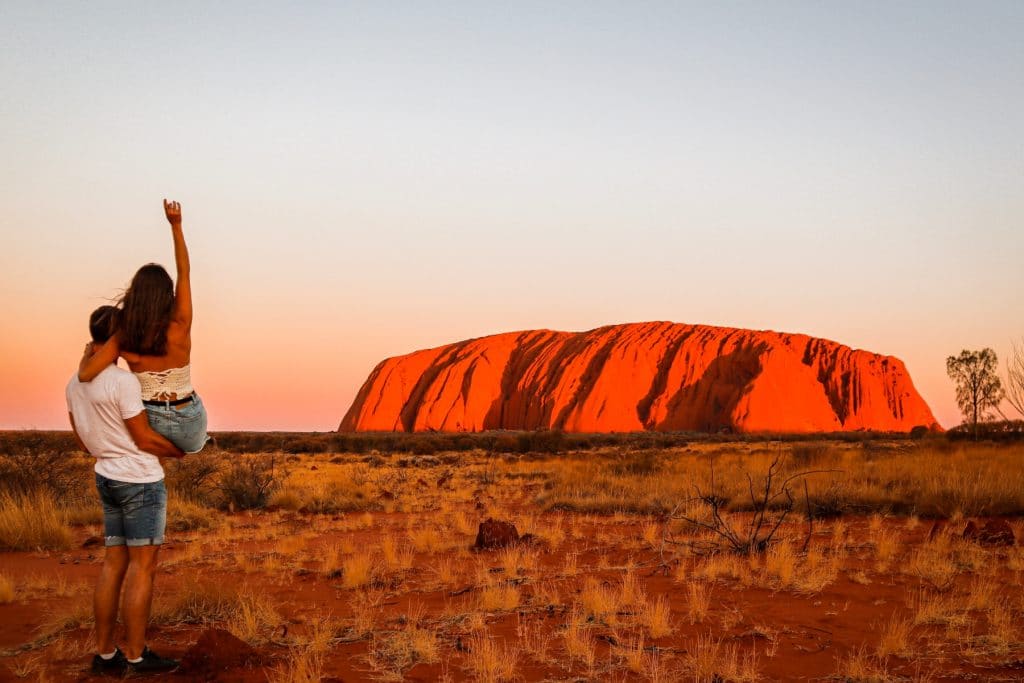
Kings Canyon
Within the Wattarka National Park you will find the spectacular Kings Canyon! This panoramic landscape will amaze you with its beauty: its 300m high red sandstone walls and rock domes will remind you of the famous American canyons. You will feel tiny in the middle of this immensity. A 6 km hike allows you to cover the entire site while gaining height and then takes you down to the Garden of Eden for a change of scenery.
❓ Why: The Rim Walk is a popular hike that offers panoramic views of the canyon and the Garden of Eden waterhole.
📍 Where: Northern Territory, within Watarrka National Park.
⛅ When: May to September to avoid the extreme summer heat and enjoy pleasant hiking conditions.
Practical info 2025
• Recommended stay : 1 day Rim Walk + 1 night under the stars.
• Access update : Freshly sealed 95 km Ernest Giles Road short‑cut from Stuart Hwy to Kings Creek (opens July 2025).
• Safety : Rim Walk closed after 11 am if forecast >36 °C – start early.
• Budget tip : Free gas BBQs at day‑use area; fuel up at Erldunda Roadhouse (cheaper than Kings Creek).
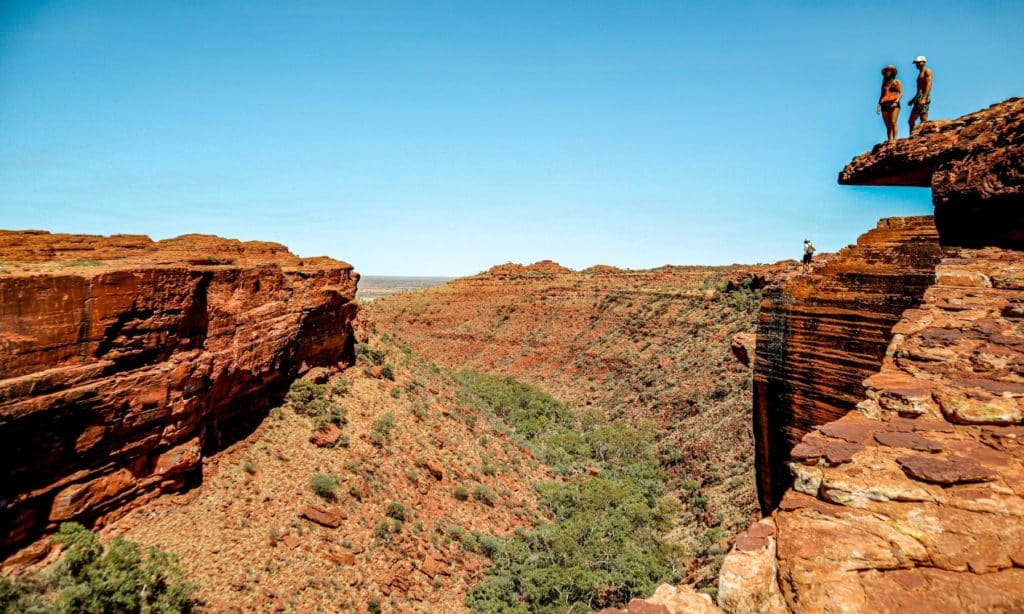
Last updated 12 June 2025 – prices & conditions checked against official park and transport websites.




















